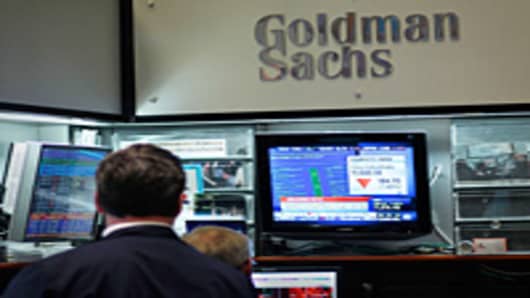Goldman Sachs could spin off at least part of its proprietary trading operations as early as this month to comply with new rules that limit Wall Street firms from betting their own money in financial markets, according to people familiar with the matter.
Though details are still sketchy, a couple of options are on the table, these people said. One is to seed a hedge fund staffed by former Goldman Sachs proprietary traders with Goldman money and replace it in the coming years with third party money as the new rule goes into effect.
Another possibility is to move proprietary trading into the firm's asset management unit, where Goldman invests clients' money rather than its own.
The ban on proprietary trading, which will be phased in over several years, is part of the financial reform bill that was signed into law last month. The move is an attempt to curb the rampant speculation on Wall Street that many say caused the recent financial crisis.
As soon as the bill was passed, many analysts said Wall Street would quickly find loopholes in the new law or at least figure out ways to profit from it.
Dick Bove, a widely followed bank analyst at Rochdale Securities, told CNBC Wednesday that Goldman could actually make more money under the new financial rules.
"This financial regulation bill is giving Goldman Sachs tremendous advantages, which will enhance their earnings growth," Bove said in an on-air telephone interview.
In addition to banning proprietary trading, big banks will also have to limit how much of their own money is invested in private equity and hedge funds. The so-called Volcker rule, named after former Federal Reserve Chairman Paul Volcker, would curb such investments to 3 percent of the firm's primary—or tier 1—capital.
Right now Goldman Sachs has more that 27 percent of its capital invested in such entities, followed by Morgan Stanley at 8.9 percent; Bank of America and Citi each have 4 percent.
Related Links:
- Goldman Settles with SEC
- Goldman Mulls Private Equity Spin-off
- Highest Profile Goldman Sachs Alums
Programming note: "The Strategy Session," hosted by David Faber and Gary Kaminsky, airs weekdays at Noon ET on CNBC.


